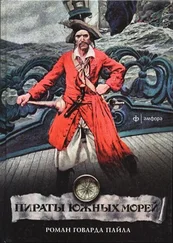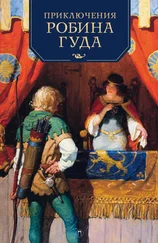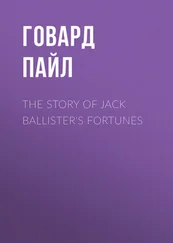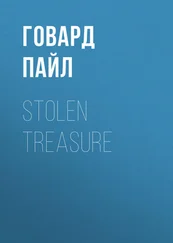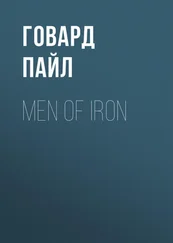Говард Пайл - Howard Pyle's Book of Pirates
Здесь есть возможность читать онлайн «Говард Пайл - Howard Pyle's Book of Pirates» — ознакомительный отрывок электронной книги совершенно бесплатно, а после прочтения отрывка купить полную версию. В некоторых случаях можно слушать аудио, скачать через торрент в формате fb2 и присутствует краткое содержание. Издательство: Иностранный паблик, Жанр: foreign_antique, foreign_prose, foreign_sf, на английском языке. Описание произведения, (предисловие) а так же отзывы посетителей доступны на портале библиотеки ЛибКат.
- Название:Howard Pyle's Book of Pirates
- Автор:
- Издательство:Иностранный паблик
- Жанр:
- Год:неизвестен
- ISBN:нет данных
- Рейтинг книги:4 / 5. Голосов: 1
-
Избранное:Добавить в избранное
- Отзывы:
-
Ваша оценка:
- 80
- 1
- 2
- 3
- 4
- 5
Howard Pyle's Book of Pirates: краткое содержание, описание и аннотация
Предлагаем к чтению аннотацию, описание, краткое содержание или предисловие (зависит от того, что написал сам автор книги «Howard Pyle's Book of Pirates»). Если вы не нашли необходимую информацию о книге — напишите в комментариях, мы постараемся отыскать её.
Howard Pyle's Book of Pirates — читать онлайн ознакомительный отрывок
Ниже представлен текст книги, разбитый по страницам. Система сохранения места последней прочитанной страницы, позволяет с удобством читать онлайн бесплатно книгу «Howard Pyle's Book of Pirates», без необходимости каждый раз заново искать на чём Вы остановились. Поставьте закладку, и сможете в любой момент перейти на страницу, на которой закончили чтение.
Интервал:
Закладка:
Howard Pyle
Howard Pyle's Book of Pirates / Fiction, Fact & Fancy Concerning the Buccaneers & Marooners of the Spanish Main
Pirates, Buccaneers, Marooners, those cruel but picturesque sea wolves who once infested the Spanish Main, all live in present-day conceptions in great degree as drawn by the pen and pencil of Howard Pyle.
Pyle, artist-author, living in the latter half of the nineteenth century and the first decade of the twentieth, had the fine faculty of transposing himself into any chosen period of history and making its people flesh and blood again – not just historical puppets. His characters were sketched with both words and picture; with both words and picture he ranks as a master, with a rich personality which makes his work individual and attractive in either medium.
He was one of the founders of present-day American illustration, and his pupils and grand-pupils pervade that field to-day. While he bore no such important part in the world of letters, his stories are modern in treatment, and yet widely read. His range included historical treatises concerning his favorite Pirates (Quaker though he was); fiction, with the same Pirates as principals; Americanized version of Old World fairy tales; boy stories of the Middle Ages, still best sellers to growing lads; stories of the occult, such as In Tenebras and To the Soil of the Earth , which, if newly published, would be hailed as contributions to our latest cult.
In all these fields Pyle's work may be equaled, surpassed, save in one. It is improbable that anyone else will ever bring his combination of interest and talent to the depiction of these old-time Pirates, any more than there could be a second Remington to paint the now extinct Indians and gun-fighters of the Great West.
Important and interesting to the student of history, the adventure-lover, and the artist, as they are, these Pirate stories and pictures have been scattered through many magazines and books. Here, in this volume, they are gathered together for the first time, perhaps not just as Mr. Pyle would have done, but with a completeness and appreciation of the real value of the material which the author's modesty might not have permitted.
Merle Johnson.Why is it that a little spice of deviltry lends not an unpleasantly titillating twang to the great mass of respectable flour that goes to make up the pudding of our modern civilization? And pertinent to this question another – Why is it that the pirate has, and always has had, a certain lurid glamour of the heroical enveloping him round about? Is there, deep under the accumulated debris of culture, a hidden groundwork of the old-time savage? Is there even in these well-regulated times an unsubdued nature in the respectable mental household of every one of us that still kicks against the pricks of law and order? To make my meaning more clear, would not every boy, for instance – that is, every boy of any account – rather be a pirate captain than a Member of Parliament? And we ourselves – would we not rather read such a story as that of Captain Avery's capture of the East Indian treasure ship, with its beautiful princess and load of jewels (which gems he sold by the handful, history sayeth, to a Bristol merchant), than, say, one of Bishop Atterbury's sermons, or the goodly Master Robert Boyle's religious romance of "Theodora and Didymus"? It is to be apprehended that to the unregenerate nature of most of us there can be but one answer to such a query.
In the pleasurable warmth the heart feels in answer to tales of derring-do Nelson's battles are all mightily interesting, but, even in spite of their romance of splendid courage, I fancy that the majority of us would rather turn back over the leaves of history to read how Drake captured the Spanish treasure ship in the South Sea, and of how he divided such a quantity of booty in the Island of Plate (so named because of the tremendous dividend there declared) that it had to be measured in quart bowls, being too considerable to be counted.
Courage and daring, no matter how mad and ungodly, have always a redundancy of vim and life to recommend them to the nether man that lies within us, and no doubt his desperate courage, his battle against the tremendous odds of all the civilized world of law and order, have had much to do in making a popular hero of our friend of the black flag. But it is not altogether courage and daring that endear him to our hearts. There is another and perhaps a greater kinship in that lust for wealth that makes one's fancy revel more pleasantly in the story of the division of treasure in the pirate's island retreat, the hiding of his godless gains somewhere in the sandy stretch of tropic beach, there to remain hidden until the time should come to rake the doubloons up again and to spend them like a lord in polite society, than in the most thrilling tales of his wonderful escapes from commissioned cruisers through tortuous channels between the coral reefs.
And what a life of adventure is his, to be sure! A life of constant alertness, constant danger, constant escape! An ocean Ishmaelite, he wanders forever aimlessly, homelessly; now unheard of for months, now careening his boat on some lonely uninhabited shore, now appearing suddenly to swoop down on some merchant vessel with rattle of musketry, shouting, yells, and a hell of unbridled passions let loose to rend and tear. What a Carlislean hero! What a setting of blood and lust and flame and rapine for such a hero!
Piracy, such as was practiced in the flower of its days – that is, during the early eighteenth century – was no sudden growth. It was an evolution, from the semilawful buccaneering of the sixteenth century, just as buccaneering was upon its part, in a certain sense, an evolution from the unorganized, unauthorized warfare of the Tudor period.
For there was a deal of piratical smack in the anti-Spanish ventures of Elizabethan days. Many of the adventurers – of the Sir Francis Drake school, for instance – actually overstepped again and again the bounds of international law, entering into the realms of de facto piracy. Nevertheless, while their doings were not recognized officially by the government, the perpetrators were neither punished nor reprimanded for their excursions against Spanish commerce at home or in the West Indies; rather were they commended, and it was considered not altogether a discreditable thing for men to get rich upon the spoils taken from Spanish galleons in times of nominal peace. Many of the most reputable citizens and merchants of London, when they felt that the queen failed in her duty of pushing the fight against the great Catholic Power, fitted out fleets upon their own account and sent them to levy good Protestant war of a private nature upon the Pope's anointed.
Some of the treasures captured in such ventures were immense, stupendous, unbelievable. For an example, one can hardly credit the truth of the "purchase" gained by Drake in the famous capture of the plate ship in the South Sea.
One of the old buccaneer writers of a century later says: "The Spaniards affirm to this day that he took at that time twelvescore tons of plate and sixteen bowls of coined money a man (his number being then forty-five men in all), insomuch that they were forced to heave much of it overboard, because his ship could not carry it all."
Maybe this was a very greatly exaggerated statement put by the author and his Spanish authorities, nevertheless there was enough truth in it to prove very conclusively to the bold minds of the age that tremendous profits – "purchases" they called them – were to be made from piracy. The Western World is filled with the names of daring mariners of those old days, who came flitting across the great trackless ocean in their little tublike boats of a few hundred tons burden, partly to explore unknown seas, partly – largely, perhaps – in pursuit of Spanish treasure: Frobisher, Davis, Drake, and a score of others.
Читать дальшеИнтервал:
Закладка:
Похожие книги на «Howard Pyle's Book of Pirates»
Представляем Вашему вниманию похожие книги на «Howard Pyle's Book of Pirates» списком для выбора. Мы отобрали схожую по названию и смыслу литературу в надежде предоставить читателям больше вариантов отыскать новые, интересные, ещё непрочитанные произведения.
Обсуждение, отзывы о книге «Howard Pyle's Book of Pirates» и просто собственные мнения читателей. Оставьте ваши комментарии, напишите, что Вы думаете о произведении, его смысле или главных героях. Укажите что конкретно понравилось, а что нет, и почему Вы так считаете.

